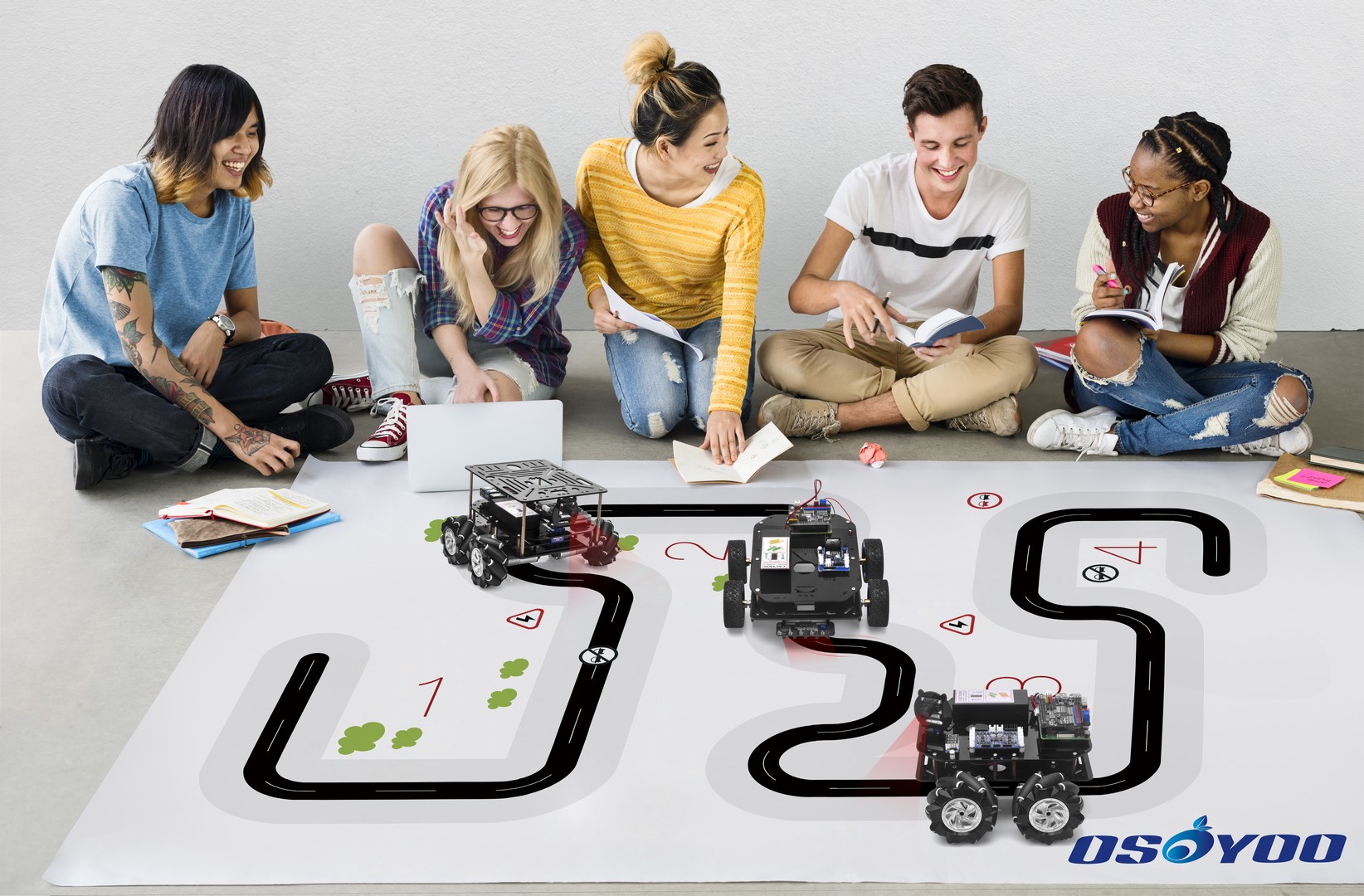
The OSOYOO MOD Robot Car Kit is the first of its kind on the market based on the Made To Order (MTO) concept.
Traditional Robot Car Kits follow the design methods of toy cars, featuring a single installation method that only supports a specific control board, sensor, and actuator. This makes it difficult for users to use their own control boards or sensors to customize their Robot Car Projects. Consequently, users have to spend a lot of time and money purchasing custom modules or creating structural components via 3D printing.
The OSOYOO MOD Robot Car utilizes a unique OpenDesign Chassis structure, with most of its main parts employing a multi-option modular design. Customers can purchase different modules separately based on their needs, significantly saving on the costs and time involved in customizing their Robot Cars. This is especially suitable for school users to tailor their Science Labs with Robot Learning Kits or to design robots for Robot Competitions.
The main modules of the OSOYOO MOD Robot Car include:
OSOYOO OpenDesign Chassis module (mandatory module)
This core component is compatible with various control boards (e.g., Raspberry Pi, Arduino), motors, and power systems. It supports up to three pairs (six pieces) of 18650 Li-on batteries. The Osoyoo OpenDesign Chassis comes in two options:
A: A double-layer chassis as the basic configuration, allowing installation of Motor+Wheels, Servo, Control board, PWM Power Module, Camera, and Sensors.
B: A triple-layer chassis that adds another layer on top of the double-layer chassis for mounting additional sensors, cameras, arms, etc.
Control Boards + I/O Board (mandatory module)
This module facilitates the Robot Car’s control logic, with all programs running on the Control Board and exchanging data with sensors and actuators via the I/O board. The main options include:
A) OSOYOO UNO Board (Fully compatible with Arduino UNO) + OSOYOO Wifi I/O board, which can perform all control functions of the Arduino UNO board and allow communication with other Wi-Fi devices.
B) OSOYOO MEGA2560 Board (Fully compatible with Arduino MEGA2560) + OSOYOO Wifi I/O board, capable of performing all control functions of the Arduino MEGA2560 board and allowing communication with other Wi-Fi devices.
C) Raspberry Pi (3,4,5) Board + OSOYOO PWM I/O Hat, which can handle all control functions of the Raspberry Pi and control 16-channel PWM output via the I2C port.
PWM H-Bridge Module (mandatory module)
The H-Bridge Module supplies current controlled by PWM signals to the motors, thereby controlling their speed and torque. The main options are:
A) OSOYOO MODEL X 2-Channel H-Bridge Module, controlling two pairs of synchronously rotating wheels.
B) OSOYOO MODEL Y 4-Channel H-Bridge Module, controlling four independently rotating motors, typically used for Mecanum wheel motors.
Motor Module (mandatory module)
Main options include:
A) Economical DC Motor
B) Gear Motor
C) Hi-Torque Gear Motor
D) Gear Motor with Encoder
Wheel Module (mandatory module)
Main options include:
A) Economical Toy Wheel for DC motor
B) Flat Wheel for Gear Motor
C) Mecanum Wheel
Optional Modules
OSOYOO CSI Camera for Raspberry Pi + Frame
5-Point Tracking Sensor Module
Ultrasonic Obstacle Sensor
Servo











